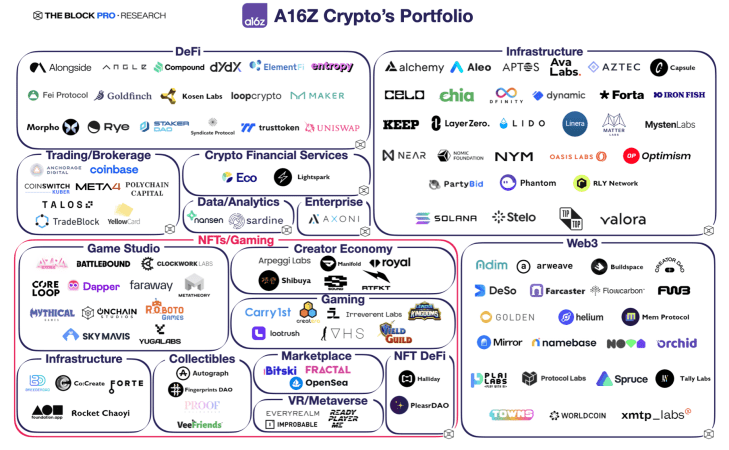Inside a16z’s evolving strategy to win crypto deals with code instead of cash

A16z doesn’t want to just dole out money anymore.
The venture capital firm is one of the most well-pocketed and deeply-connect venture firms on Market Street, but its crypto division now wants potential portfolio companies to focus on its ability to ship open-source code.
The firm — which has raised billions to deploy into the spine-tinglingly volatile market for protocols and cryptocurrencies — on Wednesday revealed its latest open-source project, Magi, a new rollup client for Optimism (OP). Optimism is a Layer 2 blockchain that aims to make Ethereum faster and more scalable.
It follows other recent software initiatives released by a16z crypto’s team of engineers, which has also shipped tooling to improve security in Ethereum smart contracts and functionality in auctions.
«Our team’s goal is genuinely to see [crypto] develop faster, more safely, and more decentralized,» the firm’s Chief Technology Officer Eddie Lazzarin said in a phone interview with The Block. «If that doesn’t happen then we don’t succeed.»
A16z — a firm that has also raked in on the success of centralized companies like Facebook that crypto is attempting to disrupt — is of course also in the business of making money. In Lazzarin’s view, contributing to software tooling that can be utilized by builders in crypto translates into new investment opportunities that would not otherwise be possible.
«If we are really technically capable and we can demonstrate to the space that, then projects will want to work with us,» Lazzarin said.

The roll-out of Magi, which effectively improves upon the existing infrastructure of an Optimism node, has already opened the doors to more deal-flow, according to Lazzarin.
«Magi is written in Rust,» he said, referring to the popular coding language. Working with an Optimism node that is written in Rust makes it more flexible for developers to work with and run deeper analytics on Ethereum.
A16z is not alone
Venture firms are uniquely positioned to contribute to these kind of software developments because it’s a difficult endeavor from which to profit, and they’re already rolling in it. Rivals VCs like Paradigm and Jump make similar types of software contributions that are billed as public good initiatives.
Some of the firm’s existing portfolio companies are already set to use Magi. Coinbase, according to Lazzarin, which will leverage Magi-powered nodes for its layer-two network, base.
«The feedback we’re getting is blowing up; they want to contribute to Magi and use it for MEV research because of the performance characteristics,» he said.
«Generally, we get entrepreneurs pitching us because they see these tools and they can materialize stuff with us. We just hired someone two days ago because he was using our tools in creative ways.»






 Bitcoin
Bitcoin  Ethereum
Ethereum  Tether
Tether  USDC
USDC  TRON
TRON  Dogecoin
Dogecoin  Cardano
Cardano  Bitcoin Cash
Bitcoin Cash  Monero
Monero  Chainlink
Chainlink  LEO Token
LEO Token  Stellar
Stellar  Zcash
Zcash  Litecoin
Litecoin  Hedera
Hedera  Dai
Dai  Cronos
Cronos  Tether Gold
Tether Gold  OKB
OKB  Ethereum Classic
Ethereum Classic  KuCoin
KuCoin  Cosmos Hub
Cosmos Hub  Gate
Gate  Algorand
Algorand  VeChain
VeChain  Stacks
Stacks  Tezos
Tezos  Dash
Dash  TrueUSD
TrueUSD  IOTA
IOTA  Theta Network
Theta Network  Basic Attention
Basic Attention  Decred
Decred  NEO
NEO  Synthetix
Synthetix  Qtum
Qtum  Ravencoin
Ravencoin  0x Protocol
0x Protocol  Zilliqa
Zilliqa  DigiByte
DigiByte  Nano
Nano  Siacoin
Siacoin  Holo
Holo  Numeraire
Numeraire  Waves
Waves  Ontology
Ontology  Status
Status  Enjin Coin
Enjin Coin  BUSD
BUSD  Hive
Hive  Pax Dollar
Pax Dollar  Lisk
Lisk  Steem
Steem  Huobi
Huobi  OMG Network
OMG Network  Bitcoin Gold
Bitcoin Gold  NEM
NEM  Augur
Augur  Bitcoin Diamond
Bitcoin Diamond